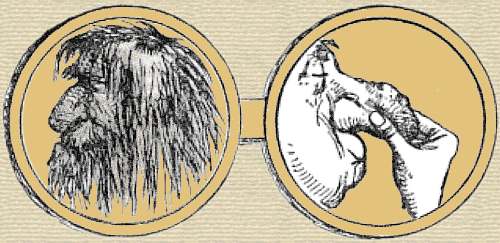Our Nasal Benefactors
[A satirical comment on the "Great Stink" from the highly polluted River Thames]
from Punch (1858)

Is it true, we wonder—it should be, if it isn't—that with the view of ascertaining the exact state of the Thames, the Government have sent out a Smelling Expedition, for which service none but, the sharpest-nosed M.P.s [Members of Parliament] were allowed to volunteer? As we are always anxious to avoid misstatement, we should be glad, if we are wrong, to be officially corrected; but we have heard that, with the knowledge of the perils of the trip, it was agreed, that only the unmarried members should be suffered to embark on it. Lest widowhood result, none but single men were accepted for the service.
We understand, moreover, that to give the sniffers ample time for making their experiments, a Government express-boat was chartered for the voyage, as being, it was thought, the slowest craft in use, and surest to break down. No member was allowed on board who had not made his will; and an experienced corps of surgeons were commissioned to attend, in order to prevent loss of life, if possible. All kinds of antidotes were abundantly provided, and there was a goodly store of brandy and other tried restoratives. In short, the nauseating nature of the service being known, due arrangements were made for the comfort of the sick, and every medical appliance to relieve them was in readiness. There was a most liberal supply of hand-basins, and every member was allowed a Steward to himself, to prevent the fruitless bellowing and bawling for that officer, to which sufferers from sickness are commonly reduced.
Now the question we would moot for the reflection of the public is, how are we most fittingly to honour these brave smellers, and show our gratitude for what they have had the courage to go through for us. Their nasal gallantry must clearly not be left unrecognised. Having sacrificed their noses on the altar of their country, how are we to recompense them for their patriotic act? Shall we institute forthwith an Order of Nasal Valour, and decorate the heroes who survive to wear it? Or would it be more suitable to erect them, each, a statue? or strike a medal to commemorate their distinguished nasal service? On one side might be shown the head of Father Thames, seen in his most filthy and disgusting aspect; while the other might be graven with the outline of a nose, pressed rather tightly with a thumb and forefinger. If this design won't do, let the nation find a better. Such exalted nasal heroism we have never before known, and it is not meet that it go unrewarded.
- 28 Mar - short biography, births, deaths and events on the date of birth of Joseph Bazalgette, the civil engineer who built London's sewer system and solved the problem of the Great Stink from the highly polluted River Thames.
- The Great Stink of London: Sir Joseph Bazalgette and the Cleansing of the Victorian Metropolis, by Stephen Halliday. - book suggestion.




